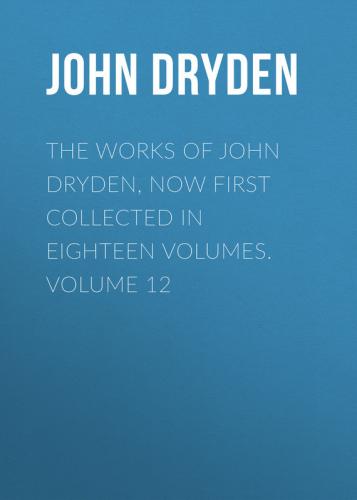That smiteth any stroke that I may sen!
But telleth me what mistere men ye ben,
That ben so hardy for to fighten here
Withouten any juge or other officere,
As though it were in listes really?
This Palamon answered hastily,
And saide; Sire, what nedeth wordes mo?
We have the death deserved bothe two;
Two woful wretches ben we, two caitives,
That ben accombred of our owen lives;
And, as thou art a rightful lord and juge,
Ne yeve us neyther mercie ne refuge;
But sle me first for seinte charitee,
But sle my felaw eke as wel as me:
Or sle him first, for though thou know it lite,
This is thy mortal fo, this is Arcite,
That fro thy lond is banished on his hed,
For which he hath deserved to be ded;
For this is he that came unto thy gate,
And sayde that he highte Philostrate.
Thus hath he japed thee full many a yere,
And thou hast maked him thy chief squiere:
And this is he that loveth Emelie.
For sith the day is come that I shal die,
I make plainly my confession;
That I am thilke woful Palamon,
That hath thy prison broken wilfully;
I am thy mortal fo, and it am I
That loveth so hot Emelie the bright,
That I wold dien present in hire sight;
Therfore I axe deth and my jewise,
But sle my felaw in the same wise,
For both we have deserved to be slain.
This worthy duk answred anon again,
And sayd, This is a short conclusion,
Your owen mouth, by your confession,
Hath damned you, and I wol it recorde.
It nedeth not to pine you with the corde:
Ye shul be ded, by mighty Mars the rede.
The quene anon for veray womanhede
Gan for to wepe, and so did Emelie,
And all the ladies in the compagnie.
Gret pite was, it, as it thought hem alle,
That ever swiche a chance shulde befalle,
For gentil men they were of gret estat,
And nothing but for love was this debat;
And sawe hir blody woundes wide and sore,
And alle criden bothe lesse and more,
Have mercie, lord, upon us wimmen alle,
And on hir bare knees adoun they falle,
And wold have kist his feet ther as he stood,
Till at the last, aslaked was his mood,
(For pitee renneth sone in gentil herte,)
And though he first for ire quoke and sterte,
He hath considered shortly in a clause,
The trespas of hem both, and eke the cause;
And although that his ire hir gilt accused,
Yet in his reson he hem both excused:
As thus; he thought wel that every man
Wol helpe himself in love, if that he can,
And eke deliver himself out of prison;
And eke his herte had compassion
Of wimmen, for they wepten ever in on,
And in his gentil herte he thoughte anon,
And soft unto himself he sayed, Fie
Upon a lord that wol have no mercie,
But be a leon both in word and dede,
To hem that ben in repentance and drede,
As wel as to a proud dispitous man,
That wol mainteinen that he first began.
That lord hath litel of discretion,
That in swiche cas can no division,
But weigheth pride and humblesse after on.
And shortly, when his ire is thus agon,
He gan to loken up with eyen light,
And spake these same wordes all on hight:
The god of Love, a benedicite!
How mighty, and how gret a lord is he!
Again his might ther gainen non obstacles,
He may be cleped a god for his miracles:
For he can maken at his owen gise
Of everich herte, as that him list devise.
Lo! here this Arcite, and this Palamon,
That quitely weren out of my prison,
And might have lived in Thebes really,
And weten I am hir mortal enemy,
And that hir deth lith in my might also,
And yet hath love maugre hir eyen two,
Ybrought hem hither bothe for to die.
Now loketh, is not this an heigh folie?
Who may ben a fool, but if he love?
Behold, for Goddes sake, that sitteth above,
Se how they blede! be they not wel araied?
Thus hath hir lord, the god of Love, hem paied
Hir wages and hir fees for hir service,
And yet they wenen for to be ful wise
That serven Love, for ought that may befalle.
And yet is this the beste game of alle,
That she, for whom they have this jolite,
Con hem therfore as mochel thank as me.
She wot no more of alle this hote fare,
By God, than wot a cuckow or an hare.
But alle mote ben assaied hote or cold;
A man mot ben a fool, other yonge or old;
I wot it by myself ful yore agon;
For in my time a servant was I on:
And therefore sith I know of loves peine,
And wote how sore it can a man destreine;
As he that oft hath been caught in his las,
I you foryeve all holly this trespas,
At request of the quene, that kneleth here,
And eke of Emelie, my suster dere,
And ye shul both anon unto me swere
That never mo ye shul my contree dere,
Ne maken werre upon me night ne day,
But ben my frendes in alle that ye may.
I you foryeve this trespas every del.
And they him sware his axing fayr and wel;
And him of lordship and of mercie praid,
And he hem granted grace, and thus he said:
To speke of real linage and richesse,
Though that she were a quene or a princesse,
Eche
